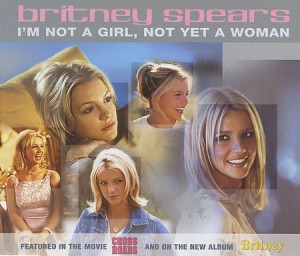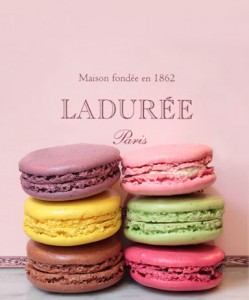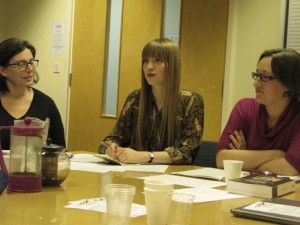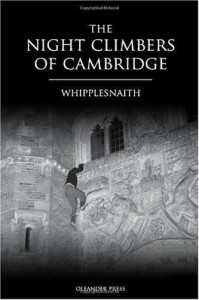On my long journey towards maturity, I have reached the stage where I can now identify fully with the existential plight famously analysed and narrated by that great prober of human crises that is Britney Spears.
 Or rather, ‘I’m not a PhD student, not yet a lecturer’. Ms Spears, shrewdly identifying the specific requirements for this predicament to end, further argues:
Or rather, ‘I’m not a PhD student, not yet a lecturer’. Ms Spears, shrewdly identifying the specific requirements for this predicament to end, further argues:
All I need is time
A moment that is mine
While I’m in-between
Or rather:
All I need is grants
For conferences in France
While I’m in-between…
(or: / All I need is more
Free access to JSTOR
/ All I need for sure
Is to give a lecture
/ All I need is three
New lines on my CV
/ All I need is you [looking intently at venerable prof]
To give me peer-review
Etc.)
Not being endowed with the same curves as the inspirational figure of my early teenage years, I’m not sure writhing half-naked on a mountaintop would alleviate my own concerns: what is this no man’s land of limboey in-betweenness that they call post-doc?
Not being a student anymore is, I would like to point out first and foremost, an absurd situation for anyone to come to terms with. I have twenty-four years of studenthood behind me (before you object that I must have been a baby for at least some of that time, I will specify that my mother, who doesn’t care much for non-adults, spent most of that time trying to make me quit that bad habit as fast as possible).
All of a sudden, I’m not a student. It all happened very unexpectedly, on my PhD viva day. Just when I thought everything was going well, my examiner said congratulations, and then:
From this day onwards, you are not a student anymore, and you will never be a student ever again. Well, unless you decide to study something entirely different at some point later in your life.
I couldn’t possibly have prepared for it; I wasn’t ready. Immediately the panic generated by the first sentence was replaced by feverish imaginings of what I could study next. An undergraduate course in Klingon could be followed by an MPhil in Advanced Crocheting? But it was too late, my supervisor came up to me and cut off my tiny Padawan braid, and it was the end of my student life.
I am now in the strange situation of having to answer to no one. Lecturers and professors always seem to have someone above them telling them what they’re doing right or wrong, usually with the help of statistical diagrams and numbers preceded by pound signs. My own post-doc contract (a very Oxbridgey Junior Research Fellowship, to be precise) doesn’t come with any particular demands that I should do anything concrete in the next three years.
It is implicit in the wording, I guess, that I shall not use them to improve my skills at dodging banana skins on Mario Kart, but there’s no precise to-do-list. I don’t ‘have to’ publish a book, write a certain number of articles, do a number of hours of teaching, present conference papers. I just have to get on with my research, and because I had an interview where they assessed that I wasn’t career-suicidal, they are simply assuming that I will do my best to improve my CV in those three years in the ways I see most fit.
So here I am, beginning a three-year job where I don’t have a boss, or externally-defined objectives, or a possibility of being fired (as far as I know), but where I can decide exactly how to organise my days and/or nights, what to refuse and what to accept in terms of teaching, and what to do in my spare time. Even in my most lucid dreams I didn’t think you could upgrade to that level of adult independence until you retired, and I’m not even long-sighted yet.
But at the same time as having all this freedom at my disposal, I will also be frantically applying, in those years, for all the jobs in the world, hundreds of much less comfortable positions but more durable ones, which will drag me into a whirlpool of admin, CV-writing, referee-bribing-with-macarons-from-Ladurée, and anguished monthly transfers to my savings account. I will be writing articles I don’t want to write but that might have a better chance of getting published than the ones I do want to write.
So I’m barely beginning my career as a researchling and I’m not sure if I should try to enjoy the most luxurious three years of my life because this is pretty much as free as it gets, or grimly memento-morise: this job is just a formidably lovely transition chamber towards a terrifying academic job market, where proper academic positions are melting away faster than the North Pole, and dancing on a bare mountain in ripped jeans begins to seem like a very reasonable option to keep at bay the weird despair of in-betweenness.






